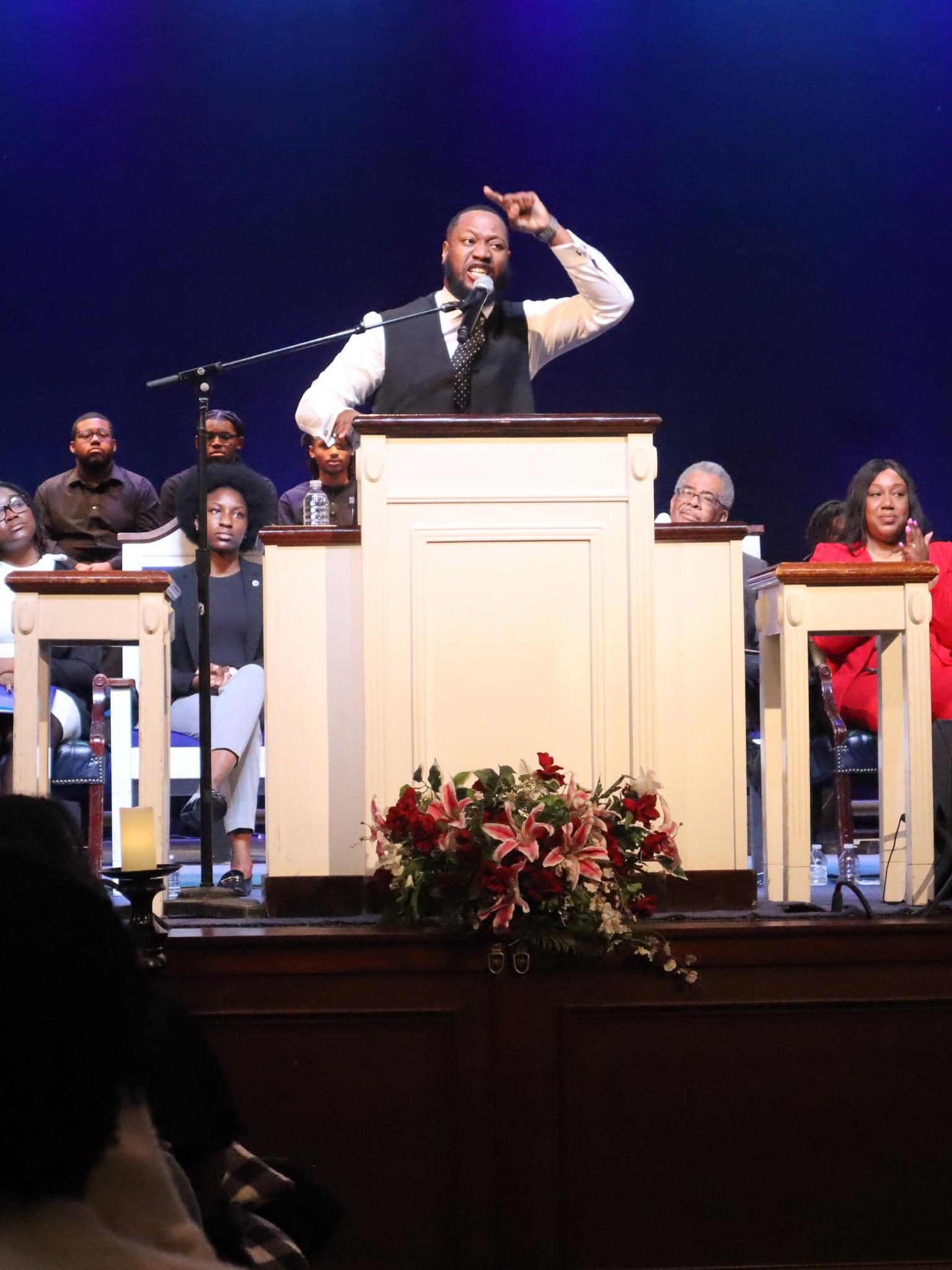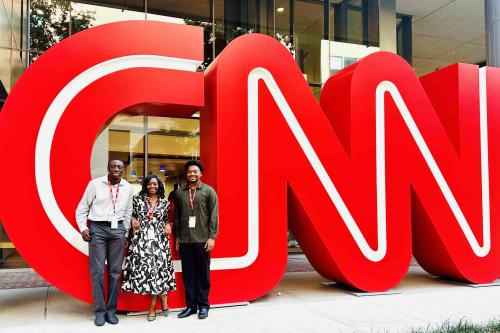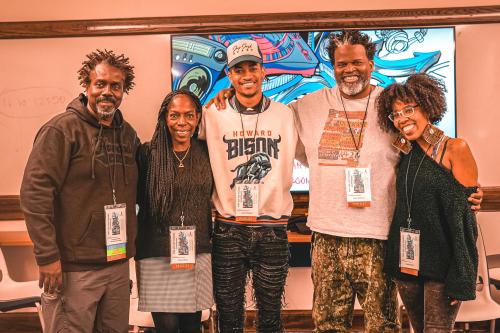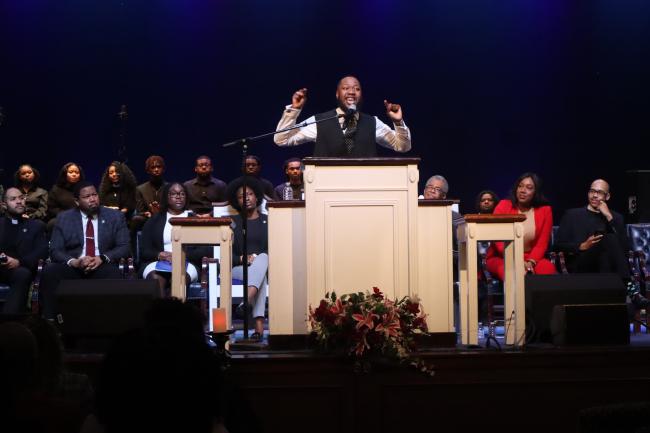On Sunday (Jan. 12), Rev. Cecil Duffie (M.Div. ’16, Ph.D. ’22) served as the featured speaker for the Andrew Rankin Memorial Chapel’s Sunday Service Series.
Duffie, a former Rankin Chapel assistant dean and the current dean of the Julius S. Scott, Sr. Chapel at the historically Black Wiley University in Marshall, Texas, selected Acts 12:5 as his scripture text for the sermon he entitled “Let Us Pray.” His message spoke to the power of prayer, reasoning its impact is often felt in the most severe and solemn moments.
Rev. Cecil Duffie, Ph.D. | Andrew Rankin Memorial Chapel | Howard University
Duffie began by recounting a Friday night on Wiley’s campus when he discovered one of his students being confronted by local law enforcement. Duffie advocated for the student’s release but to no avail, leaving him with nothing to do except pray.
“I don’t know if you’ve had the unfortunate reality of seeing someone you love get arrested,” said Duffie, “but in that moment, all I could do was pray.”

Duffie’s sermon would speak to the power of prayer, reasoning its impact is often felt in the most severe and solemn moments. Duffie said Acts 12:5 offers a “model of prayer,” noting that the church prayed constantly for the apostle Peter’s release from prison despite dogged governmental persecution.
“Instead of retreating to safety, saying to themselves, ‘We’re tired from all of the battles we’ve already had to fight,’ instead of doing those things that would give them protection, the Bible says that the church started praying,” Duffie noted.
“The way we will survive destruction, the way we will survive mayhem, the way we will survive a strategic and coordinated and systemic oppression and attack from the enemy is by the power of prayer,” Duffie said.
Duffie further cited Jesus’ prayer in Gethsemane before his crucifixion as evidence that prayer done “earnestly” can lead to near-immediate results. “Jesus prayed because his situation was dire. He needed God to do something quickly on his behalf,” Duffie said. “I’ve come to this year realizing that we cannot just pray the same ordinary prayers.”
“Our responsibility in the next presidential term, in this next session of Congress, as we enter this next semester here at Howard University, in order to liberate, in order to deliver, in order to rescue, in order to emancipate those who have been held captive by life, is to use the power of effectual and fervent prayer,” Duffie continued. “We need to testify that prayer still works.”
Duffie in closing shared that while his student unfortunately remained in police custody on that Friday evening, he was back in Wiley’s chapel services that Sunday morning, not dissimilar from the travails of both Peter and Jesus.
“As we move further into this year, as we prepare for another semester of classes, as we rework and revamp and somehow reform our goals for this season of our lives … you ought to prioritize your prayer life,” Duffie concluded.
Duffie’s sermon and the entirety of the Sunday, January 12 service can be streamed on YouTube.
Rev. Duffie delivering Sunday's sermon "Let Us Pray"
Rev. Duffie with fellow School of Divinity alumni
Rev. Duffie with Chapel Assistants and CA alumni
Keep Reading
-

Howard Students and Faculty Join CNN Newsroom Training in Abu Dhabi
Dec 10, 2024 3 minutes -

Reclaiming Hip-Hop’s Power: A Student Review of the Annual Hip-Hop Studies Conference
Dec 5, 2024 8 minutes -

Introducing ‘Friendsmas’ and Four Simple Ways to Beat the Holiday Blues
Dec 12, 2024 3 minutes
Find More Stories Like This
Are You a Member of the Media?
Our public relations team can connect you with faculty experts and answer questions about Howard University news and events.
Submit a Media Inquiry

